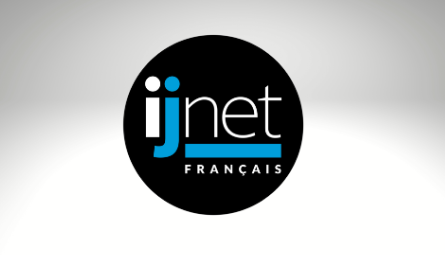
Since the pandemic, we have rapidly expanded our International Journalists’ Network (IJNet.org) at a time when reporters need it most. IJNet has long been the go-to site for journalists across the world to find useful tips, tools and opportunities. Now, more than ever, it has stepped up in a big way to serve journalists during the COVID-19 crisis.
I’m delighted to report that today we are launching IJNet French to help journalists and media professionals across the French-speaking world — from Francophone Africa, the Caribbean and beyond — better cover the pandemic. This expansion, thanks to Google.org's support, means IJNet is now reaching journalists in eight languages: Arabic, Chinese, English, Persian, Portuguese, Russian and Spanish, in addition to French.
As part of our Global Health Crisis Reporting Forum, we’ve added hundreds of new resources and toolkits, multimedia offerings and advice on helping news media startups in this difficult environment. Our monthly readership has grown to more than 160,000 people, with over 84,000 subscribers to the IJNet weekly newsletter.
Our incredible IJNet team, led by David Maas and Taylor Mulcahey, has not wasted a moment in producing all this valuable information. Now, they have added French editor Sophie Bonnevialle-Chesneau and translator Sedera Ranaivoarinosy to their global team.
Here are highlights of IJNet’s comprehensive response to meet the needs of journalists worldwide:
- IJNet has published more than 250 resources on the COVID-19 pandemic just since March. It offers practical tips for journalists covering COVID-19 and an ever-growing list of external resources. Even in Iran, a pandemic hotspot with little press freedom, journalists can tap a series of resources, including a Q&A with an Iranian photojournalist and advice for combating misinformation around the pandemic. In Arabic, IJNet has advice for investigative reporters, tips for designing a coronavirus newsletter and more.
- IJNet provides journalists with in-depth toolkits by experts, on topics ranging from media entrepreneurship and collaborative journalism, to multimedia reporting and journalism basics — all available in multiple languages. These toolkits can be used to support journalists’ everyday reporting, newsroom sustainability and critical reporting collaborations at a time when they’re needed most.
- IJNet is growing its multimedia offerings, profiling journalists’ behind-the-scenes efforts with its IJNotes podcast and spotlighting the work of photojournalists globally on its Instagram account. IJNotes’ most recent episode addresses press freedom threats during COVID-19. IJNet’s Instagram features snapshots of the global health crisis, in Iran and at the U.S.-Mexico border.
- IJNet is supporting budding media entrepreneurs. Its Arabic Mentoring Center for Media Startups in the Middle East and North Africa has received renewed funding from the National Endowment for Democracy for another two years. Through this annual program, media entrepreneurs learn best practices and tools to stay afloat during the pandemic.
To stay up to date on IJNet, please subscribe to the IJNet weekly newsletter. Engage with us on Twitter, Facebook and Instagram. Join the IJNet Forum. And pitch stories on the many different aspects of reporting during this pandemic. With your feedback, we can add even more new resources.
It takes a journalist to bring us the facts about this unparalleled health crisis and help guide us with lifesaving information. I’m proud that IJNet has gone the extra mile to provide all these valuable insights to journalists worldwide.